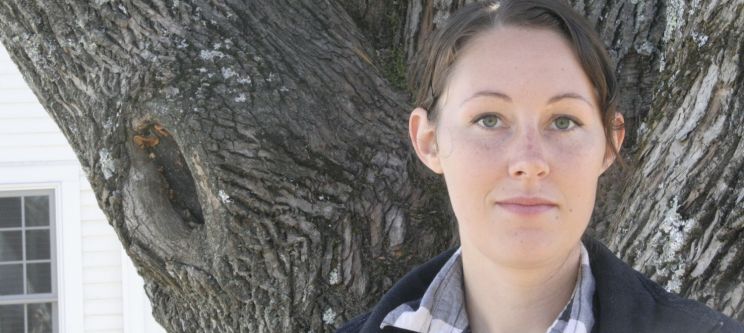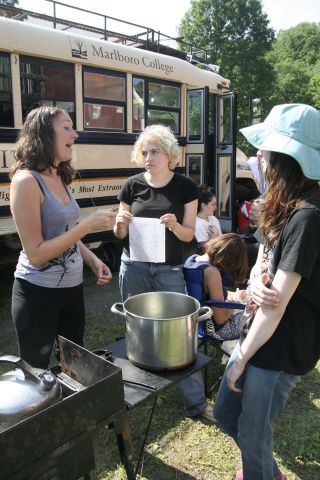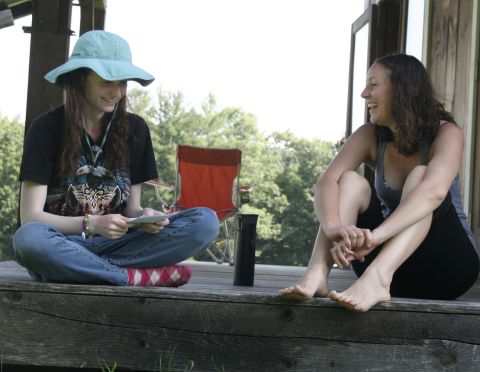Krystal Graybeal Learning by Doing

ON CHOOSING MARLBORO COLLEGE
The ideals of experiential education are what attracted me to Marlboro. Institutions that put so much trust in their students are unfortunately few and far between. I spent 7 years looking for a college that sets such high standards, while also allowing academic freedom. I have seen the alternatives, the generic track toward a degree—and I really appreciate that Marlboro didn’t just hand me a list of requirements to fulfill. Marlboro expects me to think about what I actually want, and to take responsibility for earning it.
ON KRYSTAL’S PLAN OF CONCENTRATION
The majority of my Plan will focus on experiential education and place-based education, with an emphasis on local food systems and environmental awareness. Learning is not a passive activity but it is so often treated as such, with heavy emphasis on memorization and recitation of information and lacking in true understanding. Experiential education, like I have found working with Marlboro faculty, deeply connects students to what they are learning. It often has the wonderful side effect of forming intentional, lasting relationships between students and faculty.

ON EXPERIENTIAL LEARNING AT MARLBORO
The opportunities to put experiential education theories in to practice at Marlboro are endless. In the coming semesters I hope to lead a hands-on workshop exploring food-based winter wellness, an immersion camping trip with the theater professor, and a half semester course with various faculty on the ways we interact with and experience food. Additionally, I am a resident assistant to Halfway, I am attending a student-taught swing class that may lead to performing in their Plan show, and I sit on two student, staff, and faculty committees.
ON APPLYING EXPERIENTIAL LEARNING
Last summer I had the great fortune to work for Marlboro’s pre-college summer program, which allowed me to work with faculty I might otherwise have missed and to support participants navigating a Marlboro-esque college experience. Acting as a teacher’s assistant gave me a clearer view of the many ways for students to take elements of their learning back home with them, to keep those embers burning outside the classroom.

ON TRAVELING TO NEPAL
Last spring’s trip to Nepal was another example of experiential education in action. A small handful of students and two faculty members spent two weeks traveling and learning together. We lived and ate meals together, attended pre-dawn puja at the monastery in our back yard, and had meaningful conversations during the many daily kora walks around the stupa. Additionally, before the trip each student drafted a project proposal, which we researched first-hand through exploration and interviews—I focused on the history and production of Newar pottery.
ON LIFE AFTER MARLBORO
Ideally, all this builds up to a solid foundation toward pursuing a Masters of Arts in Teaching, Ecological Education and Leadership, one of Marlboro’s graduate programs in collaboration with the Expedition Education Institute. I have always loved community-based learning and teaching, and am thrilled to have found a place where I can learn to do more than organize and teach through trial-by-fire. I truly believe in the power of creating and nurturing within students a compelling desire to know, which propels them forward on their own lifelong learning journey.

